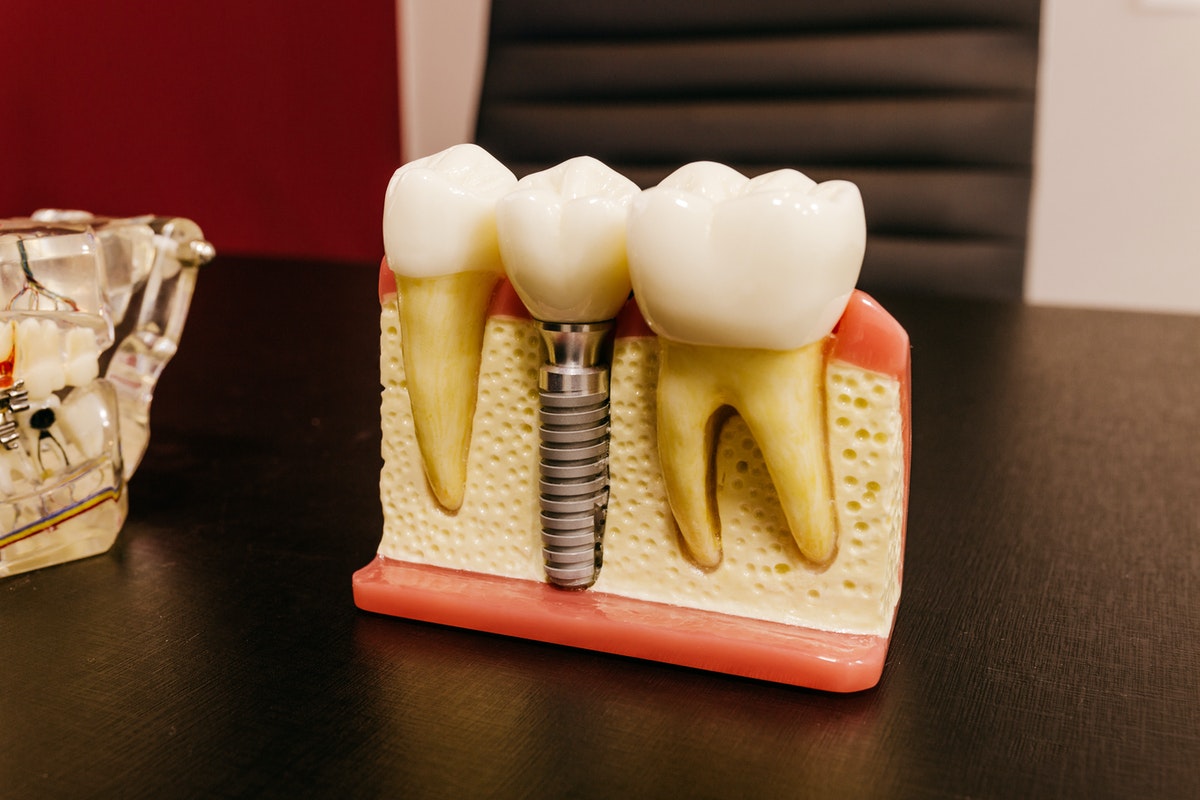Immobilised prosthetics have become a big part of many local dental surgeries’ repertoires. And with the idea of replacing teeth now becoming mainstream, they are seen by many people as an excellent alternative to a bridge or denture.
One of the biggest draws has been the easy maintenance required after the completion of the surgery. Once the osseointegration and loading of the dental implants Herefordshire is complete, the long-term care of an immobilised prosthetic is that of any other tooth, regular brushing and flossing with biannual dental check-ups. Although it is possible to chip or damage the polymer-porcelain composite used for the implant crowns, they are much harder than those found with dentures, they cannot succumb to cavities and they stain at a much slower rate than natural enamel.
The time when maintenance and care is most required is after the initial placement of the titanium implant component and during the osseointegration process. Implantation usually occurs over 2 sessions; during the first one, the gum is opened and the small titanium rod portion of the implant is placed in the jaw. The gum is then stitched over the implant which is shielded from being infected. This helps increase the rate of healing as the implant is held in place by the surrounding gum tissue.
Osseointegration can take 4 months to a year depending on your general health and lifestyle. It is during this period that oral health is of great importance, as the development of gum disease or any other severe condition can disrupt the implant as it tries to settle in. New bone growth in the jaw will associate closely with the titanium and fix it in place. It is only then that it can be loaded with the second part of the implant, the oral prosthetic.

During the loading phase, the gum is reopened and a small chance of infection occurs, but this is a very shallow incision and unlikely to cause any complications. Once attached, a newly loaded implant is fully ready for use.
In the event that an oral prosthetic does become damaged (usually from trauma), they can easily be detached from their titanium components and replaced, simplifying any future dental procedures and reducing the cost.
One significant consideration if you have a single tooth implant is that the artificial enamel will stain at a slower rate than the rest of your teeth. So although they will be colour matched at the time of installation, over time, your implant will become more noticeable, particularly if you are a heavy consumer of red wine, coffee or are a smoker. Many patients who have implants regularly receive scale and polish treatments or dental whitening from a hygienist in order to avoid this.
If you are having a denture immobilised, you will find that the maintenance is significantly less than that of removable dentures; there is no overnight soaking or adhesive use. Also, any mobilised denture cannot move and therefore will not cause the friction based sores on the gum commonly experienced by denture users.
Every patient is unique and there may be additional considerations for your case. Therefore, you should ask your dentist or oral surgeon who has carried out the implantation what the full maintenance implications are for you.

